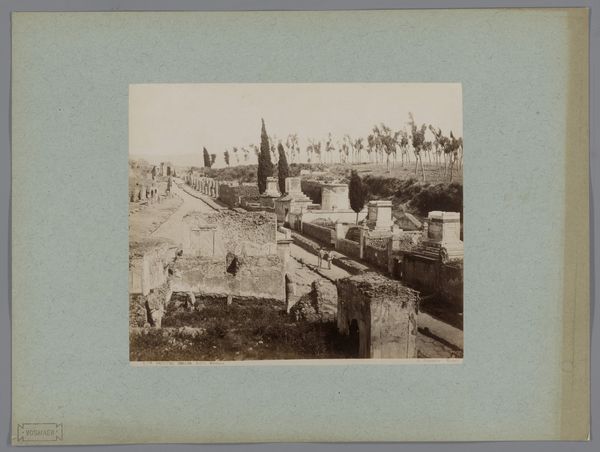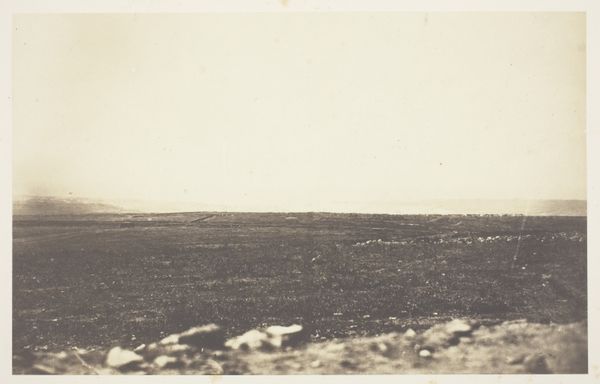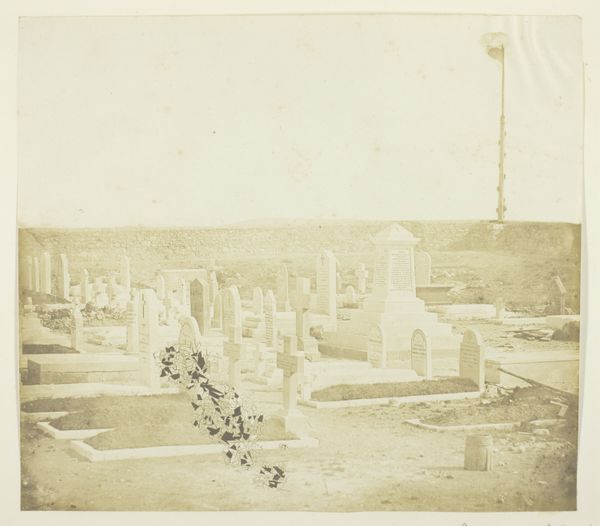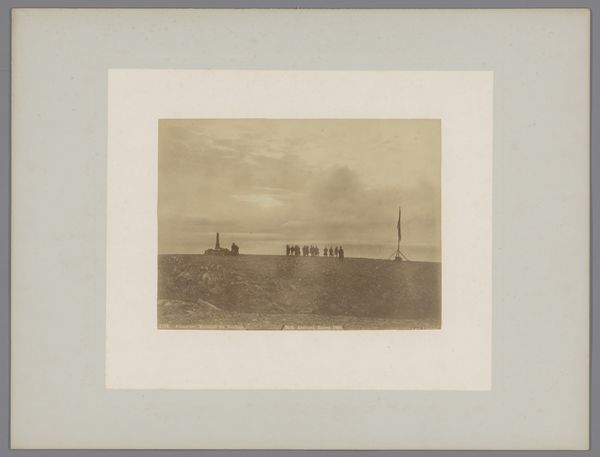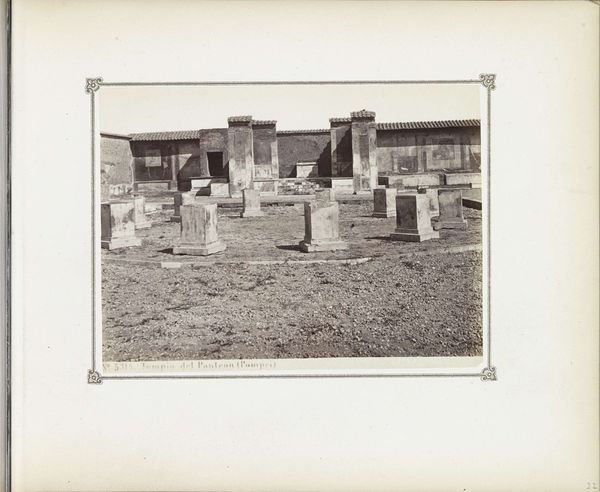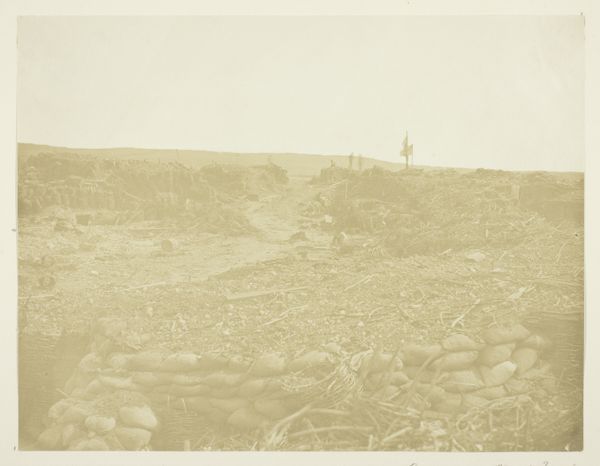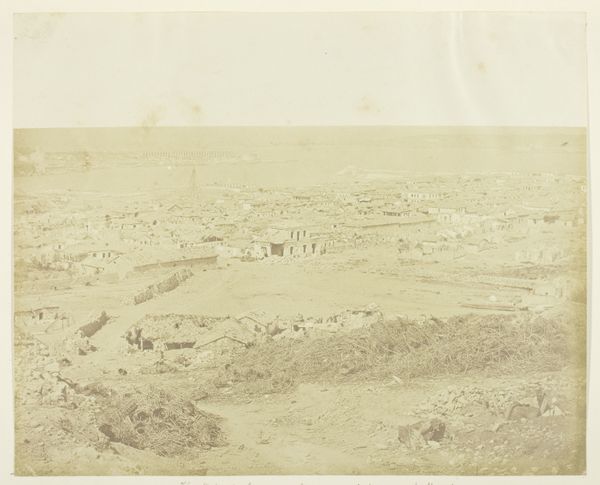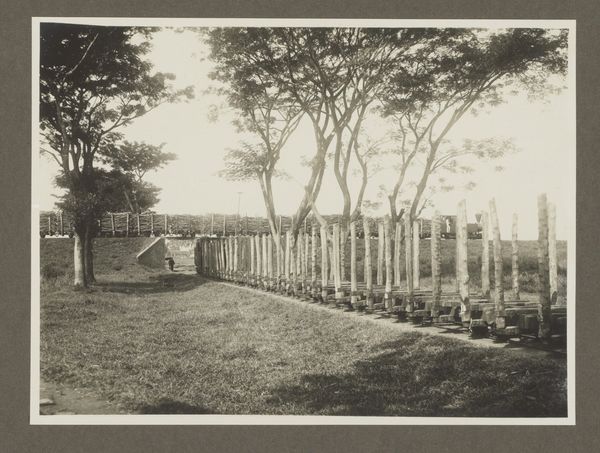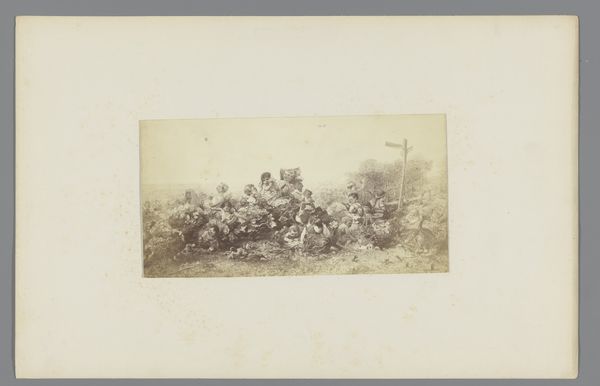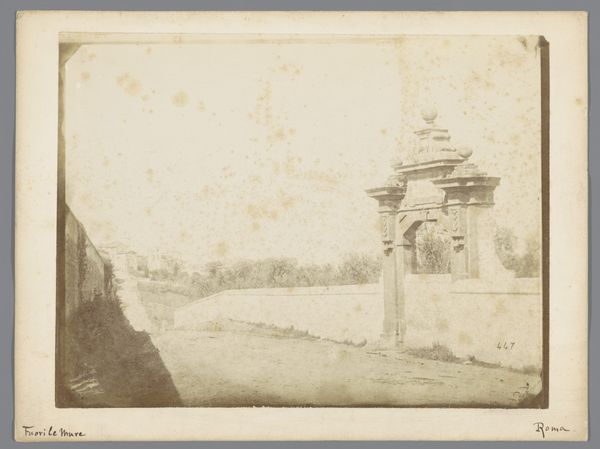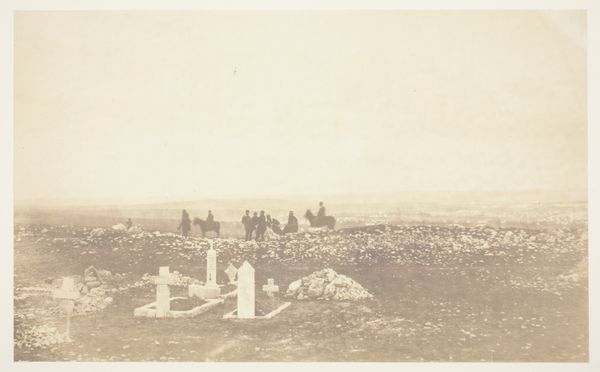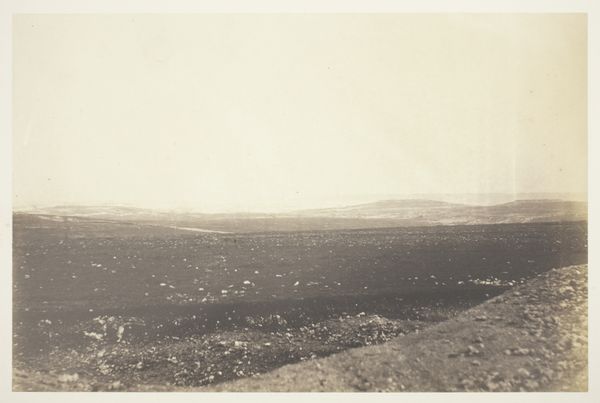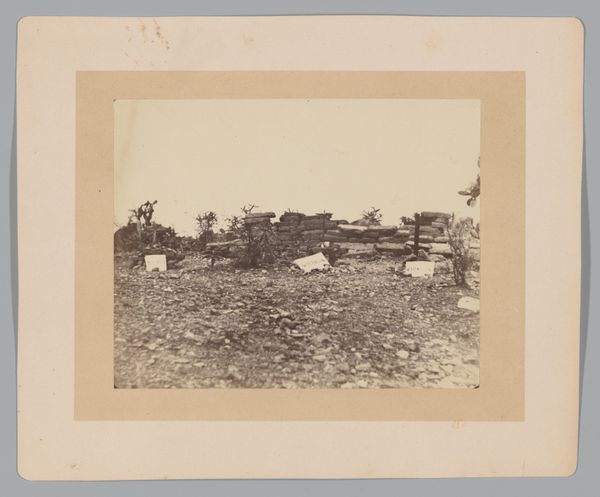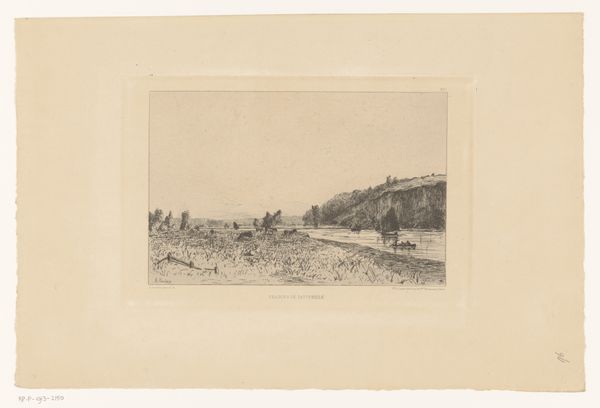
print, daguerreotype, photography
#
16_19th-century
# print
#
landscape
#
daguerreotype
#
photography
Dimensions: 23.6 × 29.4 cm (image/paper); 32 × 40.6 cm (mount/page)
Copyright: Public Domain
Editor: Here we have James Robertson’s “Cemetery on Cathcart's Hill,” a daguerreotype from 1855. The image has this hazy, almost ethereal quality, and I find it really melancholic. What do you see in this piece? Curator: This daguerreotype offers a potent lens through which to consider Victorian-era anxieties around death, particularly as experienced during the Crimean War, which Robertson documented. Photography was in its infancy, yet it offered a new way to confront and perhaps manage grief, both personally and collectively. Editor: So, this is more than just a picture of a cemetery? Curator: Absolutely. Consider Cathcart's Hill's historical context. This cemetery may house war casualties or those affected by the broader socio-economic upheaval of the time. How does photography function here? Does it provide solace, memorialize loss, or perhaps, in its starkness, serve as a critique of Victorian society's romanticization of death? Editor: It’s interesting to think of the camera itself as a tool for social commentary in that period, to grapple with the very real consequences of political decisions. Curator: Precisely. By showing a cemetery, a place usually set aside and ignored, the image urges the audience to reflect on social values and their own mortality. Are there contemporary parallels we can draw about collective loss and remembrance today? Editor: I'm definitely seeing this photograph in a new light now. The way it encourages a dialogue about memory and accountability… thank you! Curator: Indeed! And that is the enduring power of art—to spark critical reflections that resonate across time and social contexts.
Comments
No comments
Be the first to comment and join the conversation on the ultimate creative platform.
